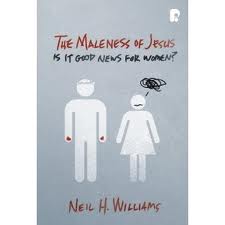 At GospelFutures, Neil Williams has a very thoughtful piece on game theory and it’s relevance for Christian theology.
At GospelFutures, Neil Williams has a very thoughtful piece on game theory and it’s relevance for Christian theology.
Game theory is the study of strategic decision making and shows the importance of trust, forgiveness, and even repentance in the development of cooperation between people and societies. Game theory originally started in mathematics, but expanded to other disciplines including psychology, economics,
politics, evolutionary biology, and warfare.
Williams looks at how a focus on “story” rather than “beliefs” helps move us away from zero-sum games (where there are clear winners and losers) toward an infinite game where the central themes of the gospel story are articulated in ways that place people and relationships above the system.
I think Williams has put his finger on the problem of Christian power plays, how to articulate it, and what to do about it.
Here are two exerpts:
Christianity formulated as a finite zero-sum game: we win; everyone else loses. We are master players, essential to this grand game, a game that has a definitive conclusion resulting in a win for us, and a loss for everyone else. The game is one of good versus evil, us versus them. Our particular beliefs and rules establish fixed boundaries of the game, and distinguish us from other Christians and their games. You may join our game and play, but only if you accept the rules that structure and direct our game. The benefits include power, titles, solid explanations, fixed boundaries, solidarity with us, and a winning hand.
As a finite game, Christianity has had little difficulty aligning itself with patriarchy, slavery, racism, hate crimes, torture and death of infidels, and colluding with empires—Roman, Spanish, English, American. In each case, there are clear winners and losers.
…..
A vision of Christianity as infinite play: Jesus creates a new playground that plays fast and loose with the rules, dissolves boundaries and fixed beliefs, and opens new horizons of possibility. In an infinite game, the central themes of the gospel story—incarnation, life, death, resurrection—are articulated in ways that place people and relationships above the system. In Christ, there are no winners or losers—there is neither Jew nor Gentile, slave nor free, male nor female (Gal 3:28). Jesus is not a master player but an infinite player who invites all to an infinite game by including the excluded and rebuking the excluders. Anyone can play, no titles are awarded, no winners are announced, and boundaries are replaced by a gospel horizon.
This infinite game is characterized by vision and openness, where beliefs and rules are continually rewritten in order to keep the game going. To put boundaries on an infinite game, destroys it and stops the game. There is no end of play, and if need be, infinite players will choose death over life in order for the game to continue.
************************
Neil Williams (D.Th., University of South Africa) is a writer and speaker, and lives outside Philadelphia with his wife and two sons. He is particularly interested in inter-personal transformation and the dialogue between theology, the sciences, and music. His most recent work is The Maleness of Jesus: Is it Good News for Women?
and two sons. He is particularly interested in inter-personal transformation and the dialogue between theology, the sciences, and music. His most recent work is The Maleness of Jesus: Is it Good News for Women?















